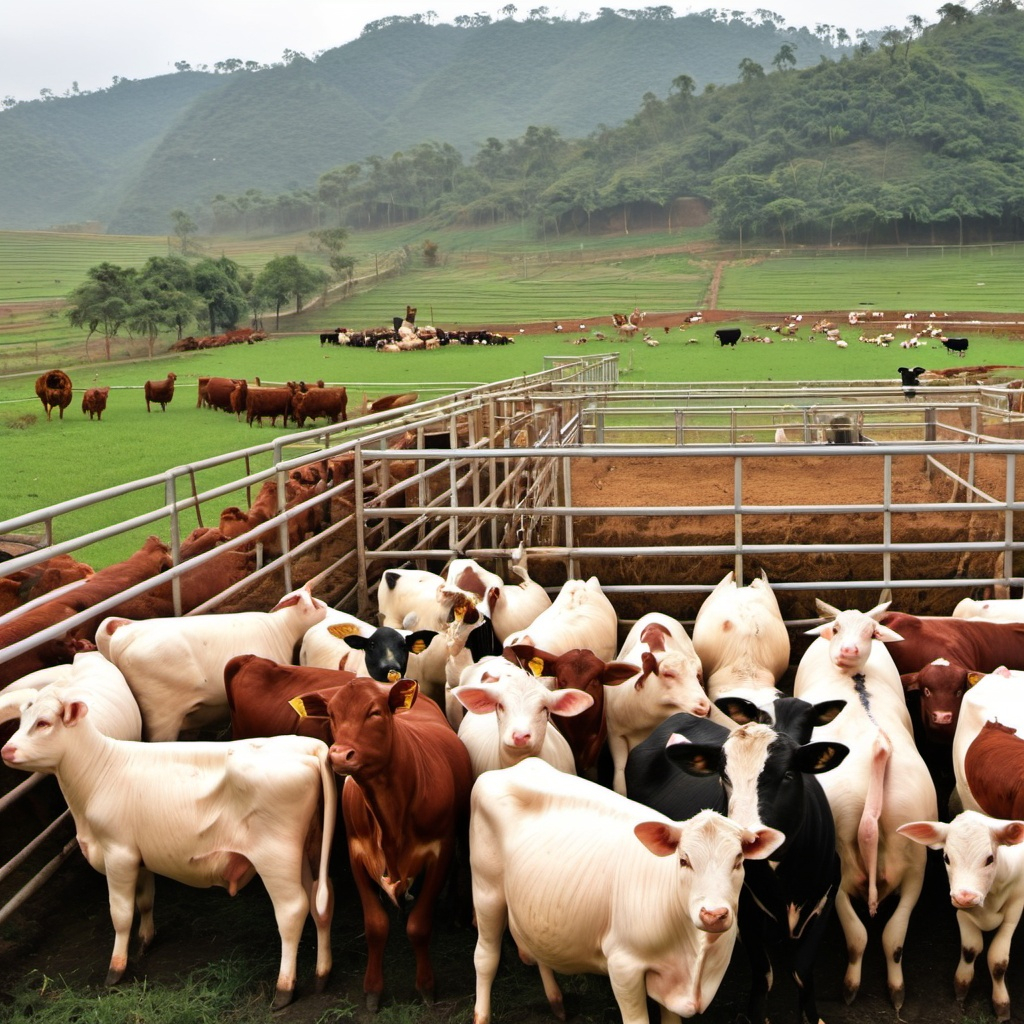
Livestock farming, also known as animal husbandry, involves the breeding and raising of animals for various purposes such as food, fiber, labor, and other products. It is one of the oldest forms of agriculture and has evolved significantly over time. Livestock farming includes the care and management of domesticated animals such as cattle, sheep, goats, pigs, poultry, and other animals.
Importance of Livestock Farming
Livestock farming plays a critical role in the global economy and food supply chain. It provides a source of income for millions of farmers and rural communities worldwide. Livestock contributes to food security through the production of meat, milk, eggs, and other animal products. Additionally, animals provide non-food products such as wool, leather, and manure, which are valuable resources in various industries.
Types of Livestock Farming
There are several types of livestock farming depending on the purpose and scale of the operation. Some of the common types include:
- Dairy Farming: Focuses on the production of milk and other dairy products such as cheese and butter.
- Meat Production: Involves raising animals like cattle, sheep, goats, and pigs for their meat.
- Poultry Farming: Concentrates on the breeding and raising of birds like chickens, ducks, and turkeys for eggs and meat.
- Mixed Farming: Combines both crop cultivation and livestock raising, providing a balanced approach to farming.
Livestock Management Practices
Successful livestock farming requires careful management practices to ensure the health and productivity of the animals. Key management practices include:
- Breeding: Selective breeding improves the quality of livestock by enhancing traits such as disease resistance, growth rate, and reproductive efficiency.
- Nutrition: Providing balanced diets that meet the nutritional needs of animals is essential for their growth, reproduction, and overall health.
- Health Care: Preventive health care, including vaccinations and regular check-ups, helps control diseases and maintain the well-being of the animals.
- Housing and Shelter: Proper housing protects animals from harsh weather conditions and predators, ensuring their safety and comfort.
Challenges in Livestock Farming
Despite its importance, livestock farming faces several challenges, including:
- Disease Outbreaks: Infectious diseases like foot-and-mouth disease and avian influenza can have devastating effects on livestock populations.
- Environmental Impact: Livestock farming contributes to greenhouse gas emissions, deforestation, and water pollution, raising concerns about sustainability.
- Climate Change: Changing weather patterns can affect the availability of feed and water, making it harder to maintain healthy livestock populations.
- Market Fluctuations: The prices of livestock products can be unpredictable, impacting the profitability of farms.
Technological Advancements in Livestock Farming
Recent technological innovations have revolutionized livestock farming, making it more efficient and sustainable. Some key advancements include:
- Precision Livestock Farming (PLF): This involves using data-driven tools and technologies to monitor and manage animals in real-time, improving decision-making and productivity.
- Genetic Engineering: Advances in genetics allow farmers to breed animals with desired traits, such as increased disease resistance and faster growth.
- Automation: Automated feeding, milking, and health monitoring systems reduce labor costs and improve farm efficiency.
- Sustainable Practices: Technologies such as waste recycling and renewable energy integration help reduce the environmental impact of livestock farming.
Economic Contributions of Livestock Farming
Livestock farming is a major contributor to the global economy. In many developing countries, it is a primary source of income and employment for rural communities. The livestock sector also supports industries such as meat processing, dairy production, leather manufacturing, and wool processing. Moreover, livestock products are a significant part of international trade, with many countries exporting meat, dairy, and other animal products to global markets.
Role of Livestock Farming in Rural Development
In rural areas, livestock farming serves as a vital source of livelihood. It provides employment opportunities, reduces poverty, and ensures food security. Small-scale farmers often rely on livestock as a means of survival, using animals for work, milk production, and as a source of income through the sale of meat and by-products. Additionally, livestock farming fosters social and cultural practices in many communities, where animals are considered a symbol of wealth and status.